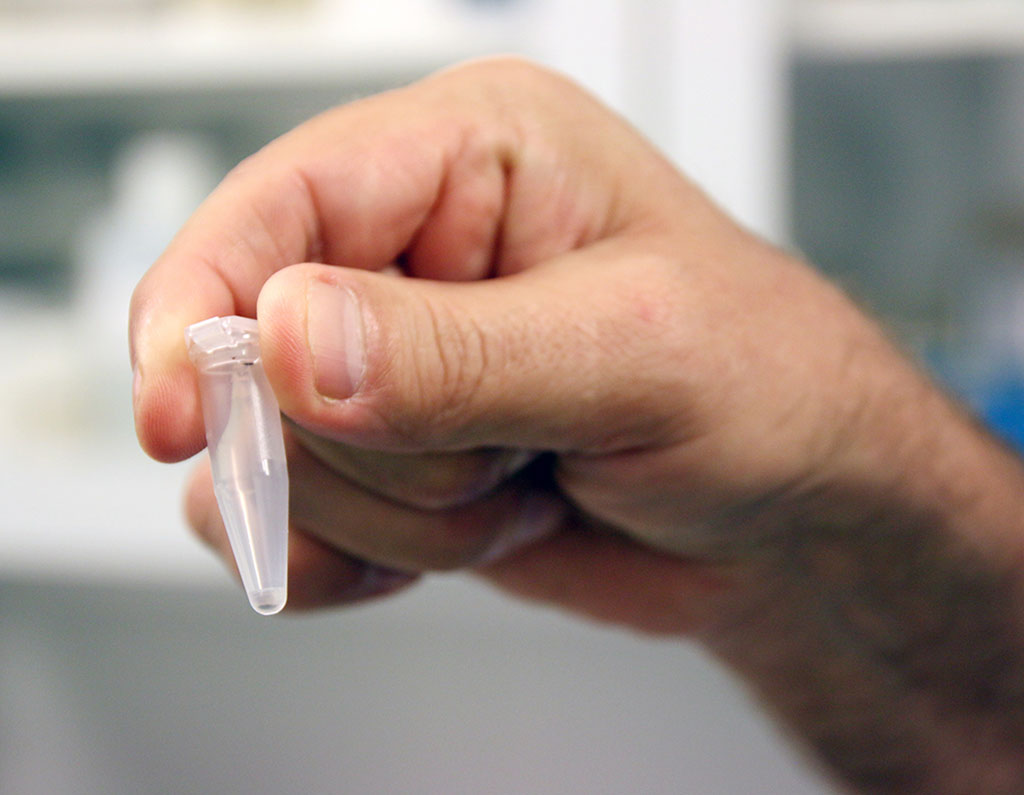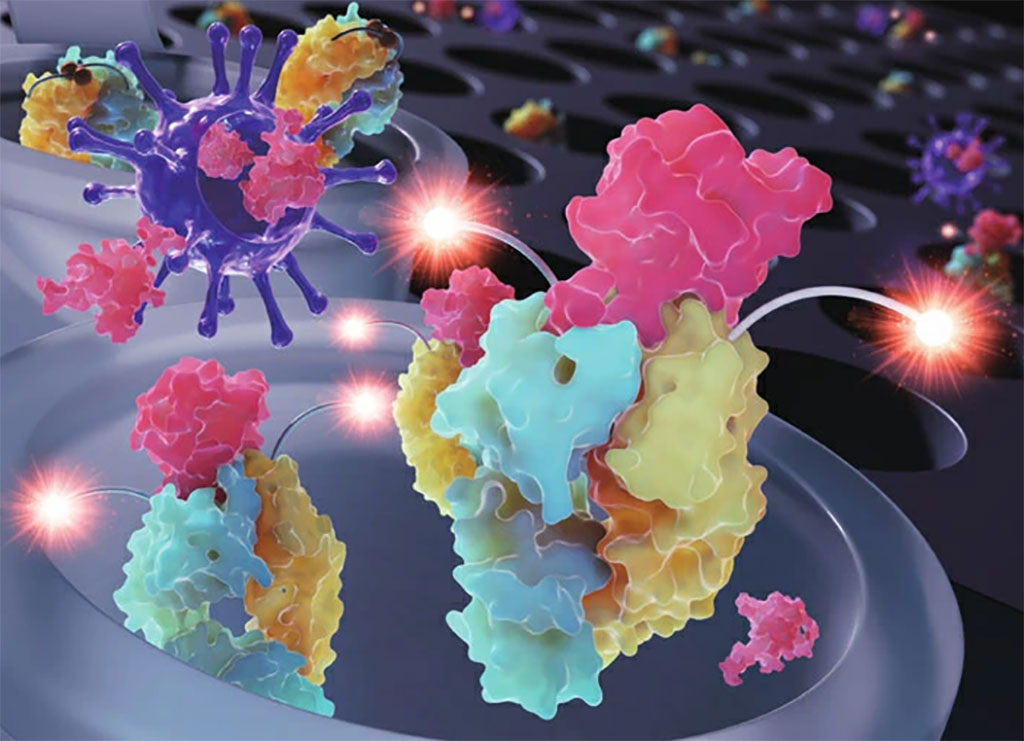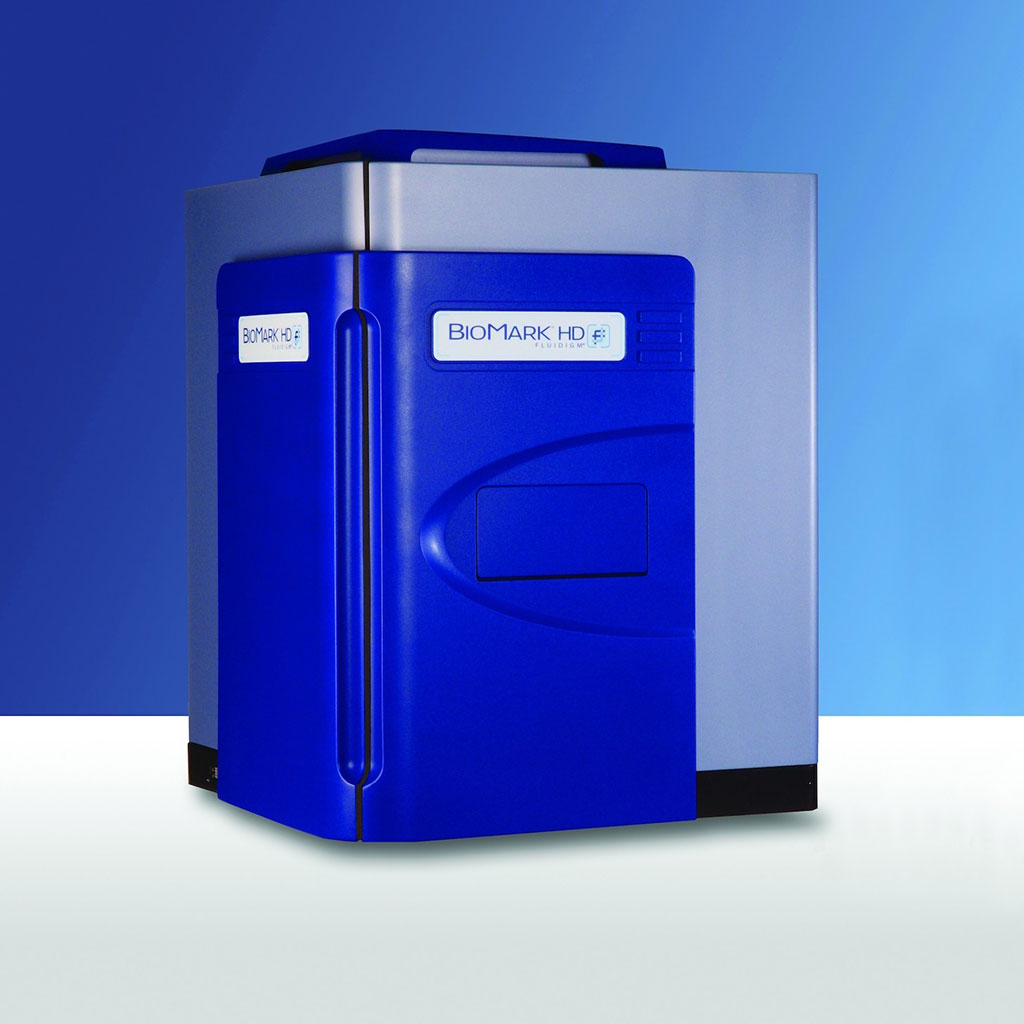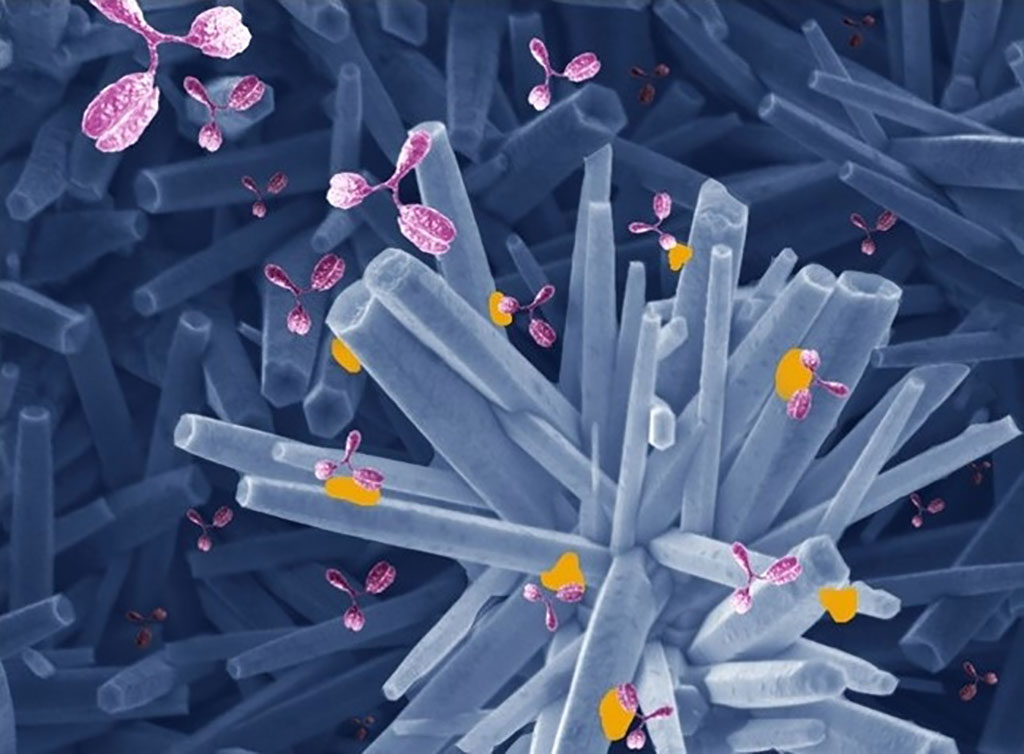New COVID-19 Test Uses Magnetic Beads to Detect SARS-CoV-2 Virus
By LabMedica International staff writers
Posted on 12 Oct 2020
A highly sensitive COVID-19 test, developed by researchers at the Norwegian University of Science and Technology (NTNU Trondheim, Norway), relies on magnetic nanoparticles to extract viral RNA.Posted on 12 Oct 2020
A key aspect of this made-in-Norway COVID-19 test is a specific combination of polar solvents, buffers, salts and other chemicals that do not damage the viral RNA molecule itself. The solution contains substances that crack the virus open so that its genetic material can be extracted. NTNU has also developed iron oxide magnetic nanoparticles that strongly bind RNA. Once the magnetic nanoparticles are coated with the viral RNA, they can be removed from the solution using a magnet. PCR technology can then identify the genetic code from the RNA and compare it to the coronavirus.

Image: New COVID-19 Test Uses Magnetic Beads to Detect SARS-CoV-2 Virus (Photo courtesy of NTNU)
The newly developed manufacturing process has proved to be very upscalable, which has enabled the NTNU labs to produce these high-quality and high-performance magnetic nanoparticles in very high volumes. Three laboratories at the Department of Chemical Engineering are currently manufacturing the magnetic nanoparticles, while another laboratory at the Department of Clinical and Molecular Medicine is making the solvents and buffers. At the same time, the test kits are subject to rigorous quality control and validation before shipping to customers. The magnetic nanobeads and buffers, and then the entire test kits are verified against a known COVID-19 positive patient sample.
In the process of gearing up to produce tests for Norway, the researchers improved the efficiency of the production system to the point where the lab is able to make more than enough tests for use in Norway. NTNU produces up to 1.2 million test kits per week and increases in production capacity will allow the groups to produce up to five million test kits a week. NTNU has signed agreements to deliver as many as one million COVID-19 test kits to DTU, the Technical University of Denmark, and APS LABS, an Indian biotech company. More than five million NTNU COVID-19 tests have already been supplied to the Norwegian health authorities. NTNU Technology Transfer has filed patent applications on the methods and products related to the NTNU COVID-19 test. The motivation is to secure control of the intellectual rights and provide access to the new test in an ethical and justifiable manner. At the same time, the university hopes to expand the number of countries to which the test will be exported.
“Testing and infection tracking are absolutely essential to maintaining control of the infection situation. The fact that NTNU has developed a new test method for detecting the coronavirus means that more people can be tested and that patients can get answers faster. It is very positive that this technology can now also be useful internationally,” said Bent Høie, Norway’s Minister of Health and Care Services.
Related Links:
Norwegian University of Science and Technology








 Analyzer.jpg)





